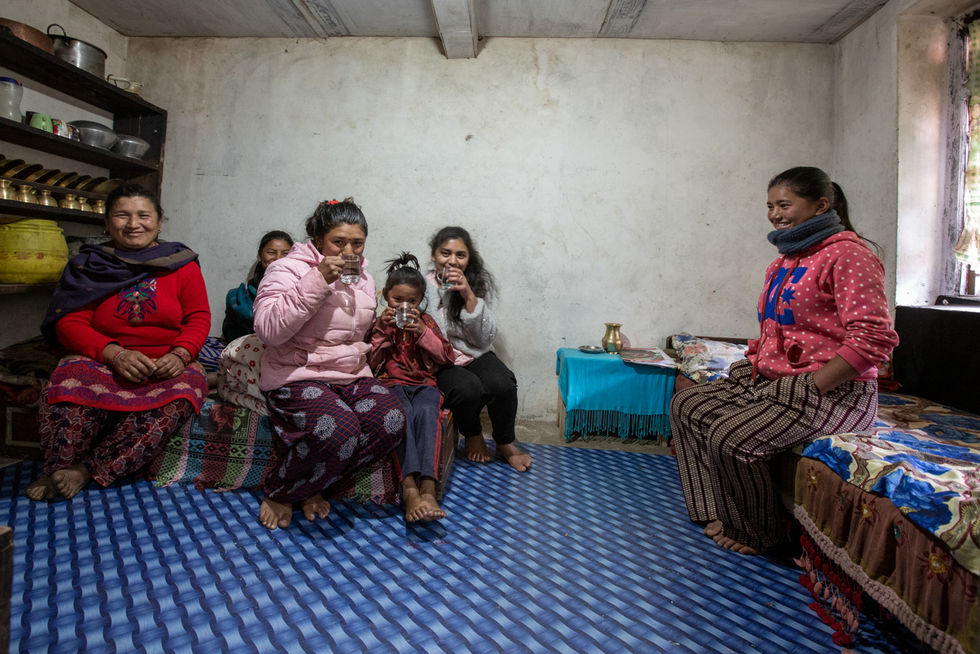Drinking water, such an essential need

Mangaldevi, 33, and Durgamaya, 40, both live in Sapukhane, Sindhupalchock district, a short distance from the Chinese border. Both married and mothers of several children, they experienced the terrible earthquake of 2015 that totally destroyed their homes. If there was already insufficient water, the earthquake completely destroyed the existing system. "We had to live in the jungle for a few weeks, in simple huts. To get water, we had to queue for hours. But there was not enough for everyone, if you were not in the first ones, you often left with your empty bucket."
Six years later, a dozen fountains have been installed in their village.
These fountains were installed in partnership with the Italian NGO ASIA. In the two entities of Sapukhane but also, higher up, in the village of Chhagam. The trenches to install the pipes from the spring were dug by the villagers, especially the women. The fountains are managed by a village committee, in charge of the maintenance, overall repair and sustainability of the water systems.
Not only do these fountains facilitate the daily life of the women in the village, but this drinking water also helps to avoid certain diseases. "I have 7 daughters, it was impossible for me to take care of them properly when I had to go and fetch water elsewhere, I was obliged to entrust them to neighbors," says Padmamaya. And since the water was not really healthy, we often suffered from fevers, sore throats, diarrhea. Now, I don't have to worry about all these worries". The water from the fountains is also used to clean food, and reused to water the small vegetable gardens that border the houses, to clean the house, clothes, etc.
Special attention is also given to awareness raising. Hygiene campaigns have been set up in the villages. The children of the school of Chhagam are particularly targeted.
















